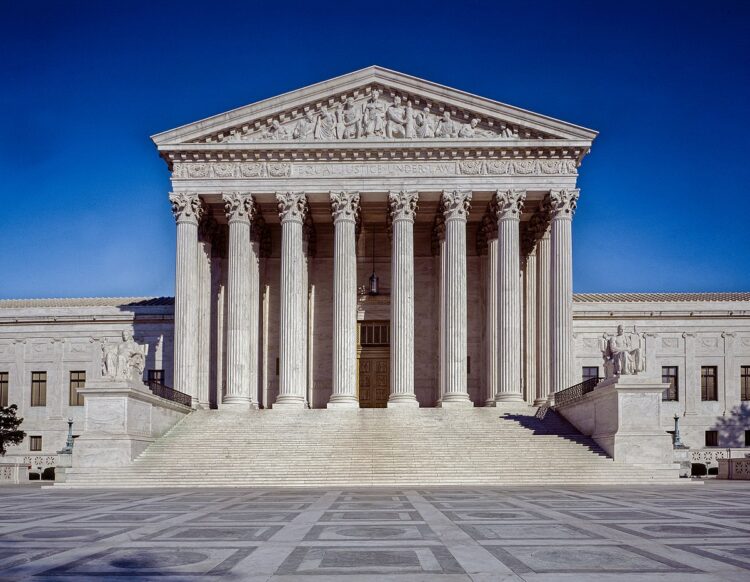By Alexander Wilson-
The Supreme Court on Thursday returned a case over Texas’ six-week abortion ban back to a federal court that twice upheld it, in the latest setback for pro-choice activists. The justices rejected abortion providers and pro-choice advocates’ wish to have the case sent to US District Judge Robert Pitman in western Texas, who previously blocked the ban.
Judge Neil Gorsuch, who authored the majority opinion in the case, granted the request on Thursday, returned the case to the highly conservative 5th Circuit Court of Appeals — a move that could both slow things down and make it even more difficult for providers to prevail.
They also allowed the law, known as S.B.8 , which deputizes private citizens to go after women seeking abortions and those who help them, to stay in effect while the underlying legal issues are being being litigated in a 5-4 vote.
‘Today’s decision by Justice Gorsuch means that the narrow path the Court afforded us is now blocked, and there is no relief on the horizon. Last week’s decision was far from a “victory” for providers and Texans, and Justice Gorsuch’s order is yet another blow to that effort.’
Gorsuch, who authored the majority opinion in the case, granted the request on Thursday, returned the case to the highly conservative 5th Circuit Court of Appeals — a move that could both slow things down and make it even more difficult for providers to prevail.
Texas has said it will ask the Appeals Court to seek clarification on SB8 from the Texas Supreme Court before moving the case forward. The abortion providers opposed that move as an unnecessary delay. The Gorsuch decision is also striking in that it breaks with what appears to be Chief Justice John Roberts’ expectation that the case would have returned to the U.S. District Court for immediate relief.
The Texas law banning abortions is based on the sanctity of life principle supported by prolife campaigners, but which has been criticised for its absent consideration for victims of rape, or a serious disability.
Campaigners for abortion say the law against abortions are thoughtless and insensitive to the protection women seeking them need. Many have pointed out that in the case of rape, the current law lacks compassion by denying a woman the right to an abortion, arguing that the pregnant woman’s life is of more value than that of the unborn baby.
Marc Hearron, the Center for Reproductive Rights lawyer who represented the clinics at the high court, said, “The Supreme Court left only a small sliver of our case intact, and it’s clear that this part of the case will not block vigilante lawsuits from being filed. It’s also clear that Texas is determined to stop the plaintiffs from getting any relief in even the sliver of the case that is left.”
The law prohibits abortions once cardiac activity is detected in an embryo, usually around six weeks and before some women even know they are pregnant. It makes no exceptions for rape or incest.
It also bypasses state officials who typically enforce laws and deputizes private citizens to sue clinics, doctors and anyone else who facilitates an abortion after the cardiac cutoff.
In last week’s majority opinion written by Gorsuch, the Supreme Court limited who can be sued by the clinics in their effort to win a court order preventing the law’s enforcement and allowing them to resume providing abortions without severe financial risks.
The court held that only state licensing officials can be sued- an outcome the clinics said would not stave off the filing of lawsuits against providers if abortions were to resume.
Gorsuch wrote that “it appears” the licensing officials can be sued. “Of course, Texas courts and not this one are the final arbiters of the meaning of state statutory directions,” he wrote.
The state told the justices it plans to ask the appeals court to, in turn, seek a definitive ruling from the Texas Supreme Court over the role the licensing officials play in enforcing the abortion ban.
The legal battle continues.




